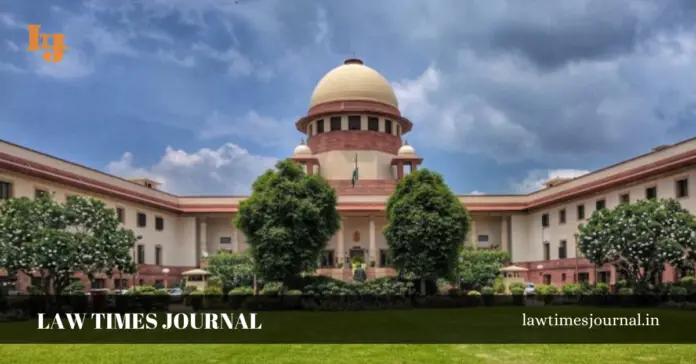
A bench of Justices L Nageswara Rao and Deepak Gupta of the Supreme Court of India ruled that the government cannot stop foreign funding of the non-governmental organisations (NGOs) supporting public causes. The court ruled that the ban on receiving foreign contributions under the Foreign Contribution Regulation Rules (FCRA Rules) should apply to only those organisations that have a political goal.
Prior Facts:
The Supreme Court had made the stated order and the observations while hearing an appeal by Indian Social Action Forum (INSAF), an NGO, which challenged the Foreign Contributions (Regulation) Act and pointed out that the grounds provided in section 5 for declaring an organisation as a political organisation were vague.
Key Features:
- The bench read down two crucial provisions in the FCRA Rules — rule 3(v) and rule 3(vi).
- It had taken into consideration the objective of the Foreign Contribution Regulation Act (Act) and FCRA Rules which is to ensure that national interest is not compromised by political organisations receiving foreign funds.
- The central government defended the provisions arguing that the right to receive funding is not a fundamental right.
- As per section 5(1) of the Act, the central government can, after taking into account the activities of an organisation or its ideology or programme, declare it as an organization of political nature even if it is not a political party.
- Such an organisation of political nature would be barred from accepting foreign contributions as per the Act.
- The petitioner argued that the grounds provided in section 5 for declaring an organization as a political organisation were vague.
- The court turned down the argument holding that the wordings of section 5 did not suffer from any ambiguity.
- Section 5(4) provided that a representation made by an organisation against the decision to declare it as a political organization can be sent by the central government to an authority calling for a report from the authority on the same.
- Rule 3 laid down norms for declaration of an organisation as one of “political nature”. Specifically, rule 3(v) provided that organizations of farmers, workers or students could be declared as a political organization if evidence gathered against such an organisation disclosed that its activities included steps for the advancement of political interests.
- Similarly, rule 3(vi) provided that any organisation which habitually engages in or employs common methods of political action (such as a public protest or a strike) in support of public causes can also be declared as an organisation of political nature.
Judgement:
- The bench while delivering the order stated that “organisations that did not have a political goal and that supported a public cause through legitimate means of protest and dissent could not be penalised by declaring them “an organisation of political nature”.
- The Court ruled that “Support to public causes by resorting to legitimate means of dissent like bandh, hartal, etc. cannot deprive an organisation of its legitimate right of receiving foreign contribution. Any organisation which supports the cause of a group of citizens agitating for their rights without a political goal or objective cannot be penalised by being declared as an organisation of a political nature”.
- The bench made it clear that those organisations used by political parties for channelling foreign funds cannot escape the severity of the law, provided that there is concrete evidence to back those claims.
- The Bench said, “In that event, the central government shall follow the procedure prescribed in the Act and rules strictly before depriving such organisation the right to receive foreign contributions”.
- The Top Court held, “Voluntary organisations which have no connection with party politics and active politics cannot be denied access to foreign contributions only because they habitually engage in or employ common methods of political action”.
- It also said that a provision of the rules to ensure that only an organisation directly connected with politics came under their purview — and not one that was merely “political” or has “political interests”
Edited by J. Madonna Jephi
Approved & Published – Sakshi Raje
Reference:
- Case of Indian Social Action Forum (INSAF) vs. Union of India, Civil Appeal No.1510 of 2020, Arising out of SLP (C) No.33928 of 2011, decided by the Supreme Court of India on March 06, 2020.








